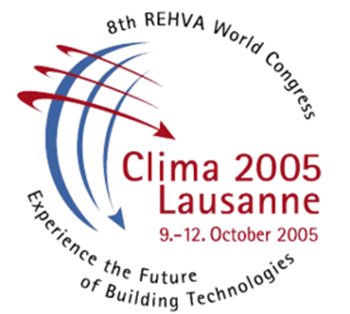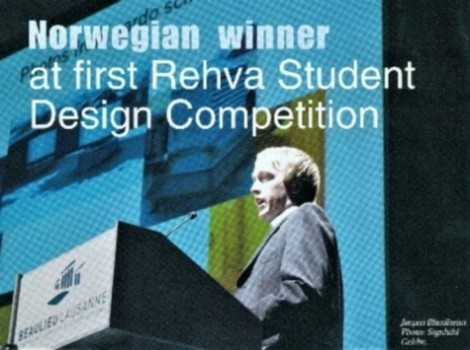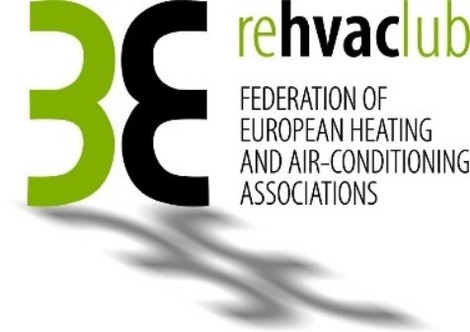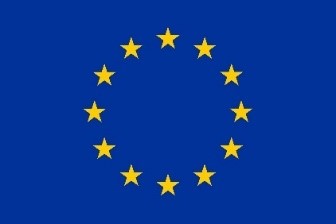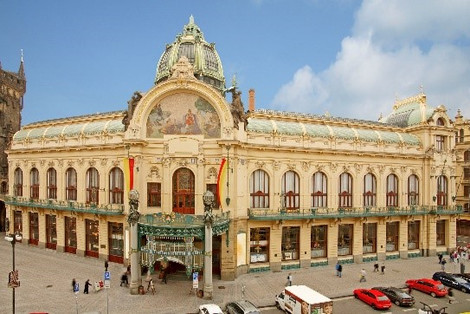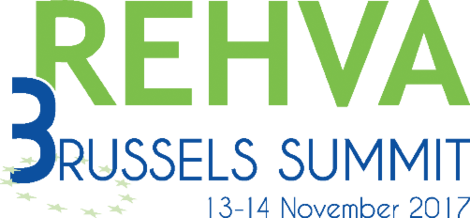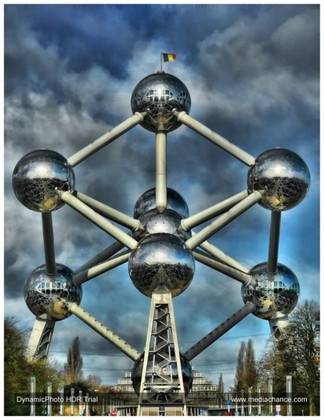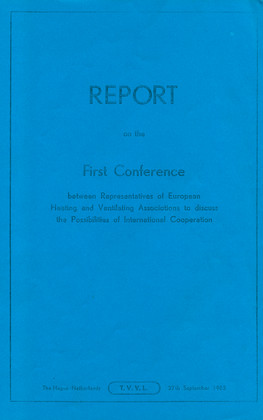
1963
Representatives of European Heating and Ventilation Associations
In the early sixties of the past century, leading professionals who regularly met at conferences recognized the need for international co-operation between technical associations in the field of heating, ventilating and air-conditioning. On 27 September 1963, representatives of technical associations from nine European countries met in The Hague, Netherlands invited by the Dutch association TVVL. Our founding members were: ATIC (Belgium), AICVF (France), VDI TGA (Germany), IHVE (United Kingdom), CARR (Italy), TVVL (The Netherlands), Norsk VVS (Norway), SWKI (Switzerland) and Swedish VVS (Sweden). First, the association operated in a less formalised way, meeting twice a year hosted by one of the national associations. The name of REHVA – standing for Representatives of European Heating and Ventilation Associations – was approved in the second meeting in London in 1964. This acronym is kept till today although the name has changed since. The first logo of REHVA was created in 1964
1969
First REHVA president and formalised operation
REHVA honorary members Henry Meijer, Neville Billington, Erik Erichsen and Mario Costantino were instrumental in the creation of REHVA and the development of the statutes and a membership based formalized operation. The first Board of two members with president Henry Meijer from TVVL and Neville Billington from IHVE was formed in 1696 after the statutes were approved and members started to pay a membership fee. A permanent “Clearing center”, later the secretariat, was also created.
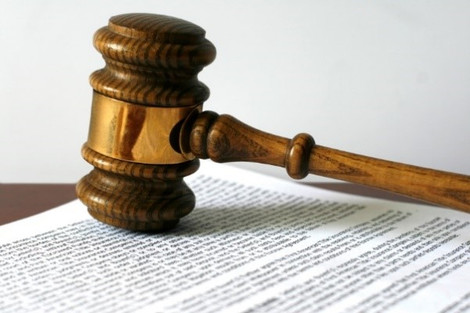
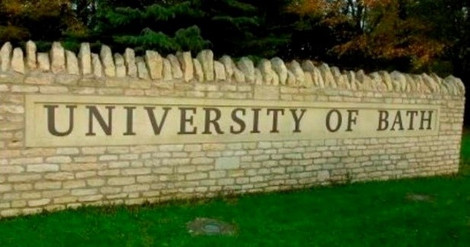
1973
First REHVA seminar in Bath, UK
REHVA members started to organise joint events to exchange views and information on topics of common interests form the very beginning. The first REHVA seminar was organised as a two-days event in the University of Bath, UK about the topic education of HEVAC professionals. The secretariat conducted a survey among members to analyse the situation of education in each member country. This was the first occasion where REHVA assessed the state of the art in member countries with the aim of learning from each other, combine efforts and thus harmonise engineering education and practice.
1979
REHVA Awards and Recognitions
Every association honours its outstanding members for their voluntary work, and scientific excellence. In October 1979, the REHVA General Assembly set up the first REHVA award category by creating the Honorary Fellow award. The REHVA Board obtained the mandate to nominate and decide about the Honorary Fellow award that can be granted to retiring members whose activity was instrumental for the development of REHVA. The first Honorary Fellows were Henry Meijer and W.H Knoll. In the coming decades, REHVA has created many other award and distinction categories, among others, the Gold Medal for outstanding scientific and technical achievements that was first granted to Professor Ole Fanger in 2001.
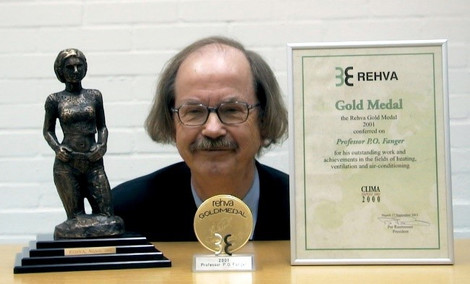
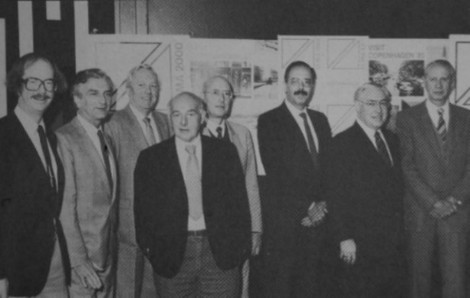
1980
CLIMA 2000 World Congress
Before the existence of REHVA, national associations have been organising conferences with international outreach that served as the initial meeting occasion of the founding fathers. REHVA aimed at fostering international exchange with help in coordinating triennial joint events from 1958. In 1971, REHVA as organisation was invited the first time to the opening ceremony of such a conference in Copenhagen and in 1975 the first REHVA steering committee was set up to up to organise an international conference in Milan. The name CLIMA 2000 was born soon after and the first CLIMA 2000 congress was organised in 1980 Budapest. The second one, in 1985, was organised in Copenhagen chaired by Professor Fanger. All REHVA Delegates chaired a session and had to write reports about them. The proceedings of CLIMA1985, edited by Fanger, were printed in 3 bands. In 2019, REHVA is organising it’s 13th CLIMA HVAC World Congress in Bucharest, Romania.
1981
Technical Programme Committee
As the technical and publication related activities grew, the REHVA Board discussed the establishment of a Technical Programme Committee under the presidency term of M. Erichsen to help the Board in technical matters following an agreed work programme. The first Technical Programme Committee was established in 1981 in Gothenburg with the following members: Ole Fanger, Istvan Fekete, Ken Dale. The committee oversaw the organisation and coordination of conferences and seminars among national member associations, developed first guidelines of joint technical work and selected papers and authors for later publications. This committee can be considered as the predecessor of the current Technology and Research Committee and is the first of the later standing committees


1982
REHVA Dictionary
The mission of REHVA has been since it’s foundation to enhance information exchange between its member countries. To help this, REHVA experts started the setup of a multilingual dictionary from the 1980’s. The first dictionary was published in 1982 as printed version with ten languages, the 2nd in 1996 with twelve. In the late 1990´s the terms of the dictionary were expanded and soon REHVA shifted to an electronic version. Derrick Braham (UK) and Koos Mast (NL) oversaw the development of a master list with more than 12 000 terms and distributed it to members to translate in their languages. Since the mid-2000’s the dictionary has been available online at the REHVA website as an interactive tool with more and more languages and terms. Today the dictionary is available also as an App.
1992
REHVA Journal
REHVA has been publishing a journal irregularly form many years, on average 4 times a year printed with different publishers in various locations. REHVA was sending bulk mailings to Member Associations´ offices to distribute the journal further to individual members. Since the late 1990’s the REHVA Journal has been produced under the leadership of the REHVA Publishing Committee chaired by Per Rasmussen until 2000, followed by Dusan Petras. The journal went through a major development under the BoD member and PMC chairman Numan Sahin reaching the current format of the REHVA European HVAC Journal. Mr Sahin moved the printing to Turkey in 2007 with individual shipment to subscribers. At the peak, REHVA journals were sent to over 5000 addresses. In the early 2010’s, due to cost reasons and the trend of digitalization the number of printed copies decreased and is mostly distributed at REHVA events. The Journal is also available for free online in the REHVA website giving the opportunity to search, read or download individual articles or entire journal issues.
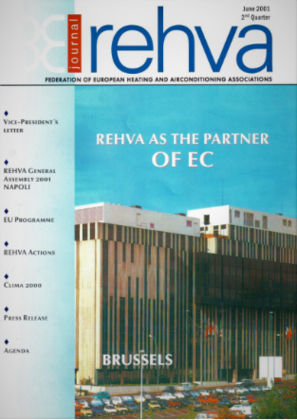

1999
EU research projects
REHVA’ participation in EU projects is important to increase visibility, disseminate information and found additional financial resources for key activities of the federation. The first EU project that REHVA implemented was a guideline for commissioning of HVAC systems published on a CD in four languages in late 1990´s. Starting from early 2000´s the EU projects were managed by the late Thierry van Steenberghe, who, together with REHVA Presidents Dusan Petras, Francis Allard, Olli Seppänen and others, significantly increased REHVA’s participation in EU projects. The rapid increase in the number of projects was due to the international reputation and contacts of REHVA presidents and strategic external partners. EU projects were instrumental for REHVA´s growth and visibility on the road from a technical club to an influential professional organization.
1999
International cooperation
REHVA has been cooperating with international organisations from the 1990’s, IIR, Eurovent and ASHRAE being the first partners. The first formal partnership agreement was signed with Eurovent/Cecomaf in 1999 which was renewed and improved in 2006 with a Memorandum of Understanding (MoU) This led to significant cooperation between REHVA, Eurovent and Eurovent Certification lasting till today.
To increase its international visibility and to promote European HVAC engineering knowledge, REHVA expanded its connections worldwide based on MoU with fellow professional organizations across the globe. The first MoU with ASHRAE was signed in 2007, boosting cooperation between the two organizations. This was soon followed by CCHVAC, China, ISHARE, India, SASHE, Japan and many other associations till today.
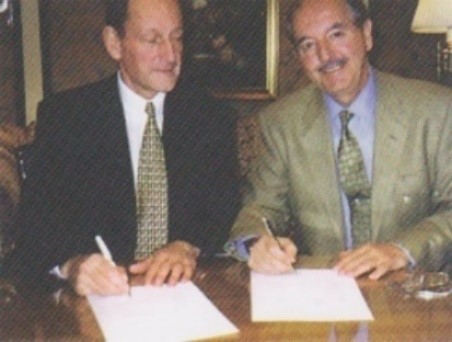
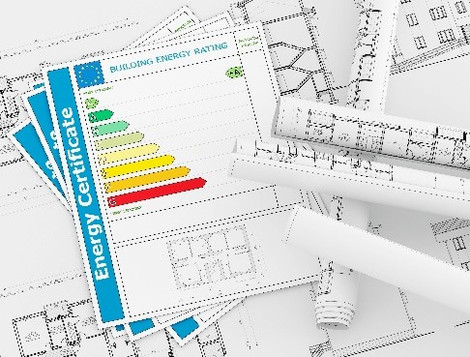
2002
1st EPBD, the need for building codes and standards
REHVA has been promoting the harmonisation of building regulations and policies in the EU from the late 1990’s by developing guidelines, disseminating information and contributing to the early European standardisation efforts. In 1998, REHVA office has been transferred to Brussels and technical activities of the association have further increased, REHVA kept more frequent connections with the European Commission.
In 2001, REHVA prepared a report about the differences between the national building codes and regulations across the EU, coordinated by Francis Allard. REHVA dedicated this topic a workshop at CLIMA2000 in Naples in 2001 with the objective to define the needs for future standards addressing building design rules related to energy and indoor environment quality. As a result, REHVA called for more building codes and standards at EU level.
2002 saw a key turning point of our sector with the release of the first Energy Performance of Buildings Directive (EPBD) that has a major effect on REHVA as well. REHVA focused on the implementation of the EPBD after 2002 and REHVA became an acknowledged stakeholder supporting the implementation of the directive.
2002
First REHVA guidebook
The idea of developing European guidelines was raised at the GA in 2000. At the same period REHVA developed the concept and structure of Task Forces, which are groups of experts from at least 3 European countries with the task to develop a guidebook. In 2002, REHVA published its first guidebook on Displacement ventilation. This work boosted also cooperation with European HVAC manufacturers, as the book was written with the support of Halton and Swegon. The interest in cooperation between industry and REHVA lead to the supporters’ programme.
Later, REHVA established procedures to professionalize the production of guidebooks, including English proofreading and typesetting. For many years, Verity Braham and Derrick Brahman took care of the challenging task of poof reading and improving the technical language of the books written by non-native speakers. REHVA will be always grateful for their valuable volunteer contribution.
REHVA guidebooks are available for all Member Associations to be translated to national languages allowing the transfer of European knowledge to professionals in their mother tongue.
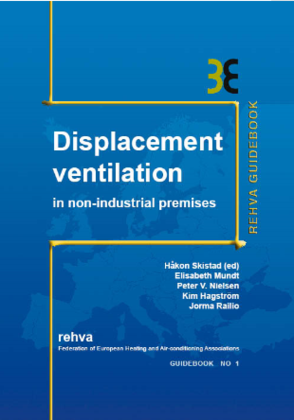
And the story continues...
Stay Informed
Follow us on social media accounts to stay up to date with REHVA actualities

